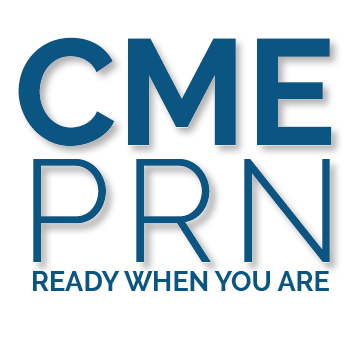
Total Credits: 1 including 1 AMA PRA Category 1 Credit(s)™, 1 AOA Category 1-A Credit(s)
This program will expire and must be completed by 09/28/26.
*** Meets DEA Requirements ***
Opioid use disorder seriously impacts the lives of many Americans. Drug overdose is now the leading cause of accidental death in the US, with opioids being the most common drug involved. This presentation reviews the epidemiology, diagnosis, and management of opioid use disorder, with a focus on identifying approaches to treat opioid use disorder that are evidence-based. The session is appropriate for all physicians, including primary care physicians and specialists.
Learning objectives:
• Describe the epidemiology of opioid use disorders and opioid-related mortality, focusing on how increased heroin use and fentanyl in the drug supply have changed the dynamics of the epidemic.
• Define opioid use disorder, and explain how to diagnose opioid use disorder.
• Describe options for treatment of opioid use disorders, including detox, behavioral therapies, and medications for opioid use disorders (buprenorphine, methadone, naltrexone), and discuss the evidence for the effectiveness of these interventions.
• Understand the mechanism of action of buprenorphine, and describe key principles of managing opioid use disorder with buprenorphine.
• Describe how harm reduction principles can be applied to treating opioid use disorders, including naloxone prescribing and access to syringe services programs.
• Describe the impact of stigma on people with opioid use disorders, and discuss ways to reduce stigma related to opioid use disorders in clinical practice.
Accreditation Statement:
The event has been planned and implemented in accordance with the accreditation requirements and policies of the Accreditation Council for Continuing Medical Education (ACCME) and the American Osteopathic Association (AOA) through the joint providership of the Missouri Association of Osteopathic Physicians and Surgeons (MAOPS) and Kansas City University (KCU) College of Osteopathic Medicine. MAOPS is accredited by the ACCME to provide continuing medical education for physicians.
AMA (Allopathic) Credit Designation:
The Missouri Association of Osteopathic Physicians and Surgeons (MAOPS) is accredited by the ACCME to provide continuing medical education for physicians. MAOPS designates this activity for a maximum of 1 AMA PRA Category 1 Credit(s)ä.. Physicians should claim only the credit commensurate with the extent of their participation in the activity.
AOA (Osteopathic) Credit Designation:
The Missouri Association of Osteopathic Physicians and Surgeons (MAOPS) is accredited by the AOA to provide osteopathic continuing medical education for physicians. MAOPS designates this program for a maximum of 1 AOA Category 1-A CME Credit(s) and will report CME and specialty credits commensurate with the extent of the physician’s participation in this activity.
Planning Committee:
The KCU CME Committee members serve as the CME Planning Committee for this conference. Membership of the committee includes faculty and staff from KCU and may include physicians from local communities. Members of the committee are listed on the KCU CME webpage at https://www.kansascity.edu/programs/continuing-medical-education.
Disclosures:
Each of the members of the Conference Planning Committee discloses that the relevant parties have no actual or potential conflict of interest in relation to this program or presentation, including no relevant financial relationships with any commercial interests relative to the content of this program. Speaker disclosures are included within each bio and will be shown at the beginning of each presentation.
Grievance Policy for AOA Credit:
All grievances should be in writing and should specify the nature of the grievance. Initially, all grievances should be directed to MAOPS Executive Director, who will then forward said grievance to the Education & Convention Committee. All grievances will receive an initial written response within 30 days of receipt. If the participant does not receive a satisfactory response, they can submit a complaint in writing to the Council on Continuing Medical Education of the AOA at 142 East Ontario Street, Chicago, IL 60611.
| Health Equity-Caring for Patients with Opioid Use Disorder (3.18 MB) | 60 Pages | Available after Purchase |

Benjamin Grin, MD, MPH, received his MD from Tufts University School of Medicine, and he completed Internal Medicine residency at Brigham and Women’s Hospital / Harvard Medical School. He received his MPH from Brown University. He currently serves as an Assistant Professor of Primary Care at KCU, where he teaches clinical skills to 1st and 2nd year medical students and is involved in expanding public health training within the medical school. He maintains an active clinical practice at the KC CARE Health Center; his clinical work includes primary care, HIV care, and care for patients with substance use disorders. He also serves on the Kansas City, Missouri Health Commission where he is active in advocating for change to improve the health of our broader community.
Benjamin Grin, MD, MPH has no relevant financial relationships with any organization producing, marketing, reselling, or distributing health care goods or services consumed by, or used on, patients relative to the content of this presentation.
Dr. Grin can be reached at bgrin@kansascity.edu.
| 5 |
|
| 4 |
|
| 3 |
|
| 2 |
|
| 1 |
|